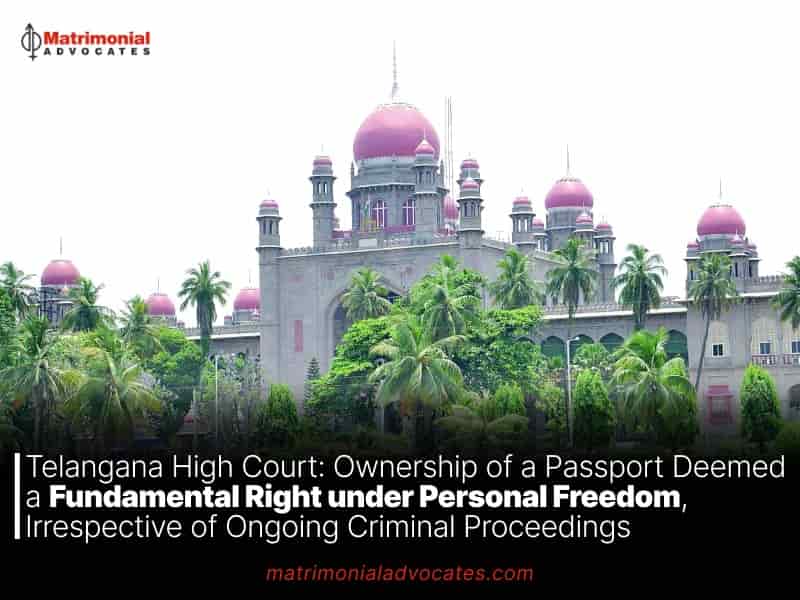
Telangana High Court: Passport Denial on Grounds of Pending Criminal Cases Deemed Unjustifiable; Personal Liberty Encompasses Passport Ownership
In a recent judgment, the Telangana High Court emphasized that the mere existence of a pending criminal case cannot justify the denial of passport services. The court affirmed that personal liberty includes the right to possess a passport.
Despite previous refusals based on Sections 5(2)(c) and 6(2)(f) of the Passports Act, 1967, citing an ongoing court case involving offenses under Sections 420, 468, and 471 of the Indian Penal Code (IPC), the Court granted the petitioner’s request for passport renewal.
A Single Bench of Justice Surepalli Nanda observed, “Respondents cannot refuse the renewal of passport of the petitioner on the ground of the pendency of the aforesaid criminal case against the petitioner and the said action of the respondents is contrary to the procedure laid down under the Passports Act, 1967.”
The petitioner applied for passport renewal, but the Passport Office rejected the request citing an adverse police report. The petitioner contended that he was falsely accused in the case and emphasized his willingness to cooperate with the investigation, particularly highlighting his connection to the case concerning immovable property, which guaranteed his accessibility to the authorities.
The Court held that “pendency of criminal case cannot be the ground to deny passport facilities to the petitioner since petitioner’s right to personal liberty not only includes petitioner’s right to travel abroad, but also petitioner’s right to possess or hold a passport.”
The Court noted that the Passport Office’s refusal to renew the petitioner’s passport based on a pending criminal case diverged from the protocol specified in the Passports Act and the Supreme Court’s judgment in Vangala Kasturi Rangacharyulu v. Central Bureau of Investigation, 2020 Crl.L.J. (SC) 572.
In the cited case, the Supreme Court clarified that passport denial is only justifiable if an applicant has been convicted of a crime involving moral turpitude within five years prior to the application date, with a sentence of imprisonment lasting at least two years. As a result, the Court directed the Passport Office to reassess the petitioner’s application within a ten-year timeframe in accordance with Section 10 of the Passports Act, 1967. Consequently, the High Court approved the petition.





